Abstract
Extrinsic consequences have been criticized on the grounds that they decrease intrinsic motivation or internally initiated behavior. Two popular rationales for this criticism, Lepper's overjustification hypothesis (1981) and Deci's motivational theory (Deci & Ryan, 1985), are reviewed and the criticism is then redefined behaviorally. “Intrinsically controlled” behavior is defined as behavior maintained by response-produced reinforcers, and the question concerning extrinsic consequences is thus restated as follows: When behavior is maintained by response-produced stimuli, does extrinsic reinforcement decrease the reinforcing value of those stimuli? The empirical support for this detrimental effect is summarized briefly, and several possible explanations for the phenomenon are offered. Research results that reflect on the effect's generality and social significance are discussed next, with the conclusion that the effect is transient and not likely to occur at all if extrinsic rewards are reinforcing, noncompetitive, based on reasonable performance standards, and delivered repetitively.
Keywords: extrinsic reinforcement, intrinsic motivation
Full text
PDF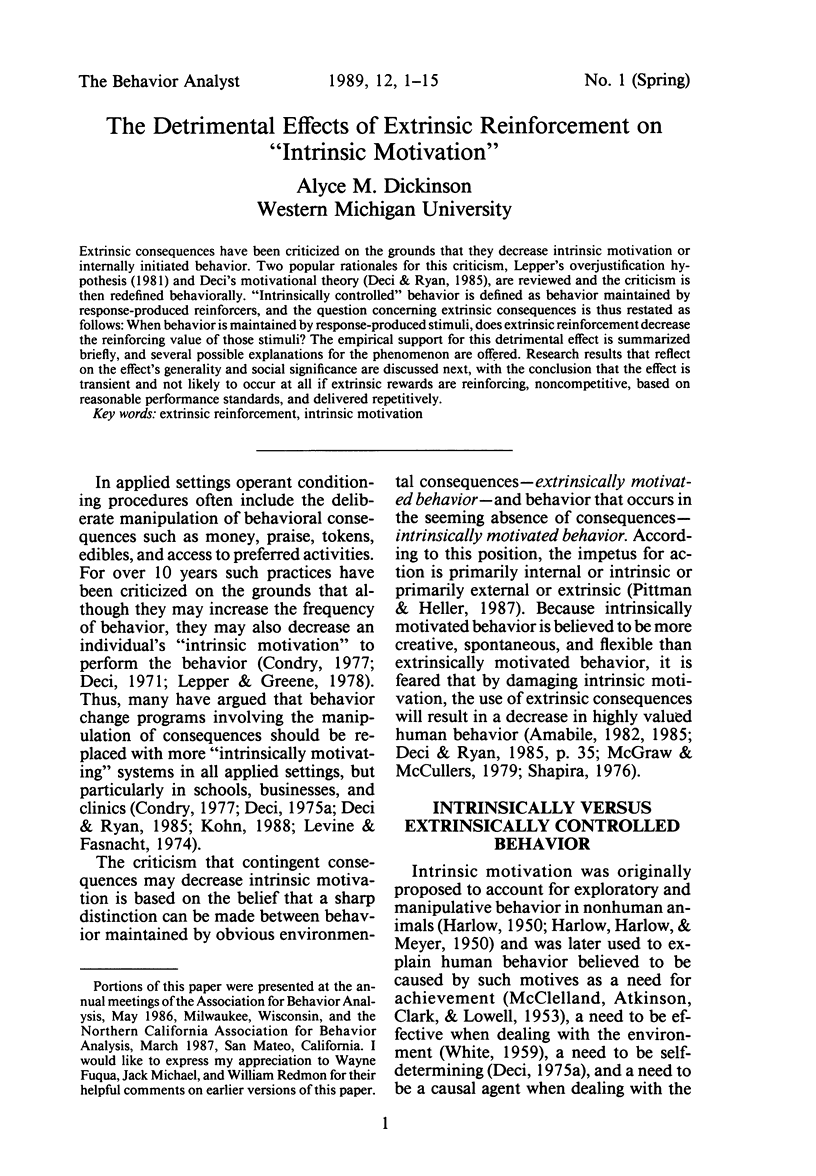
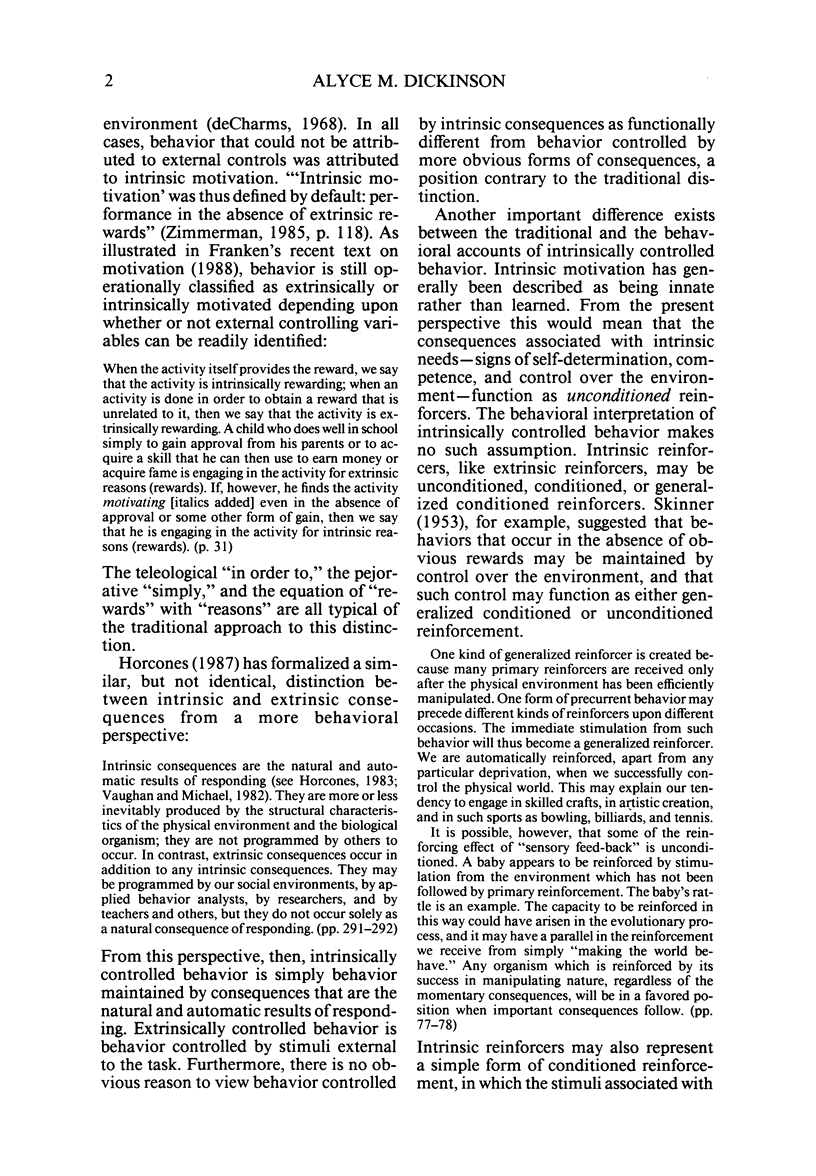
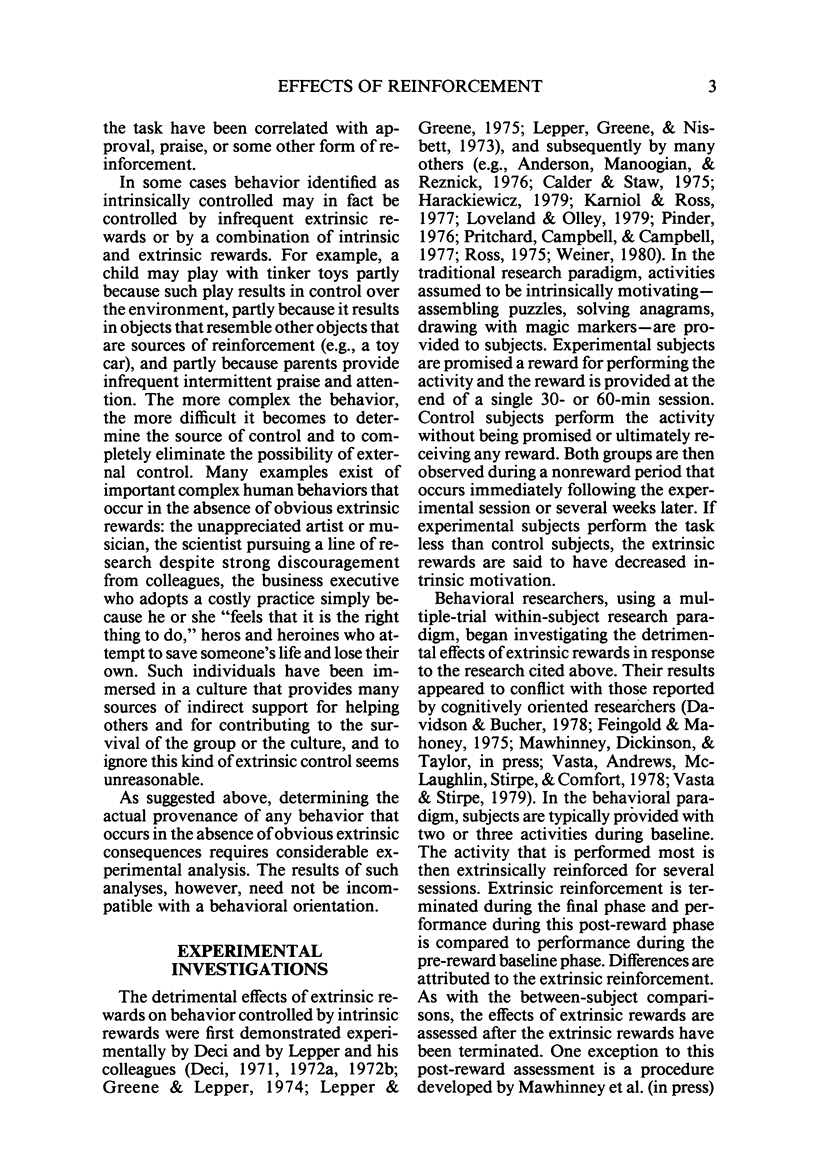
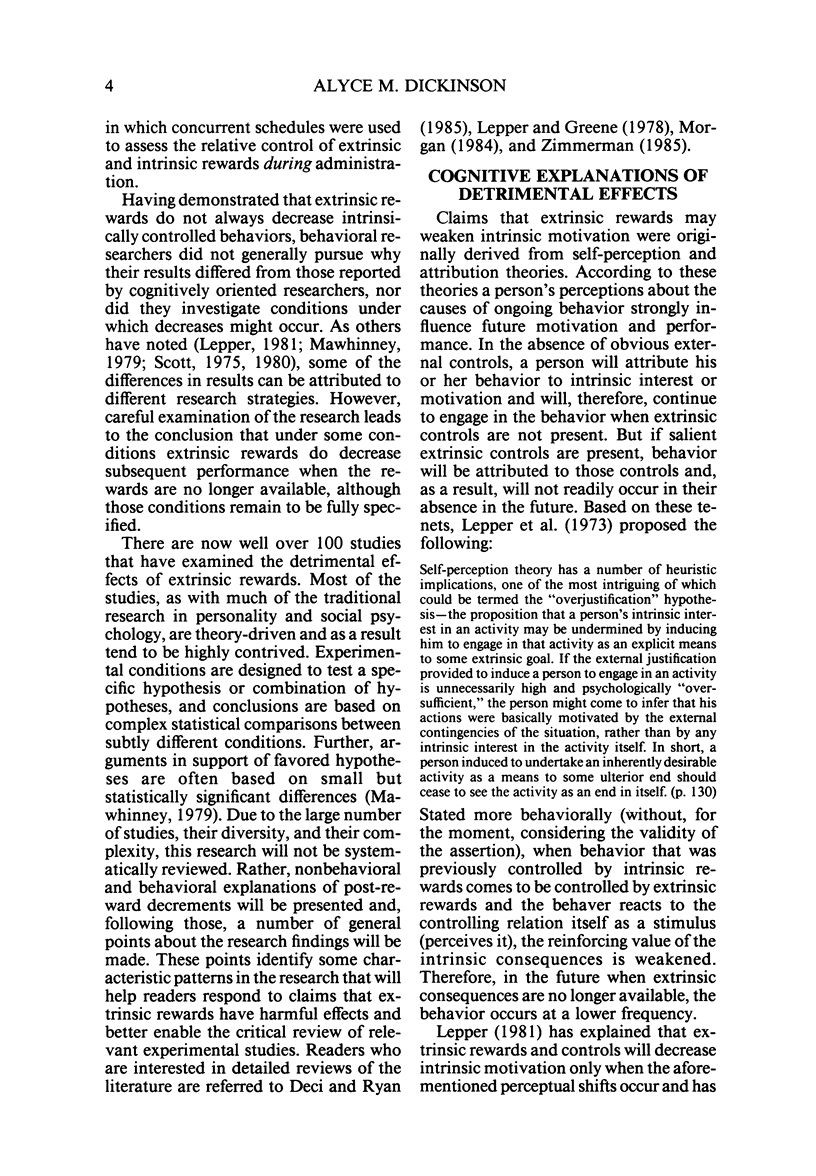
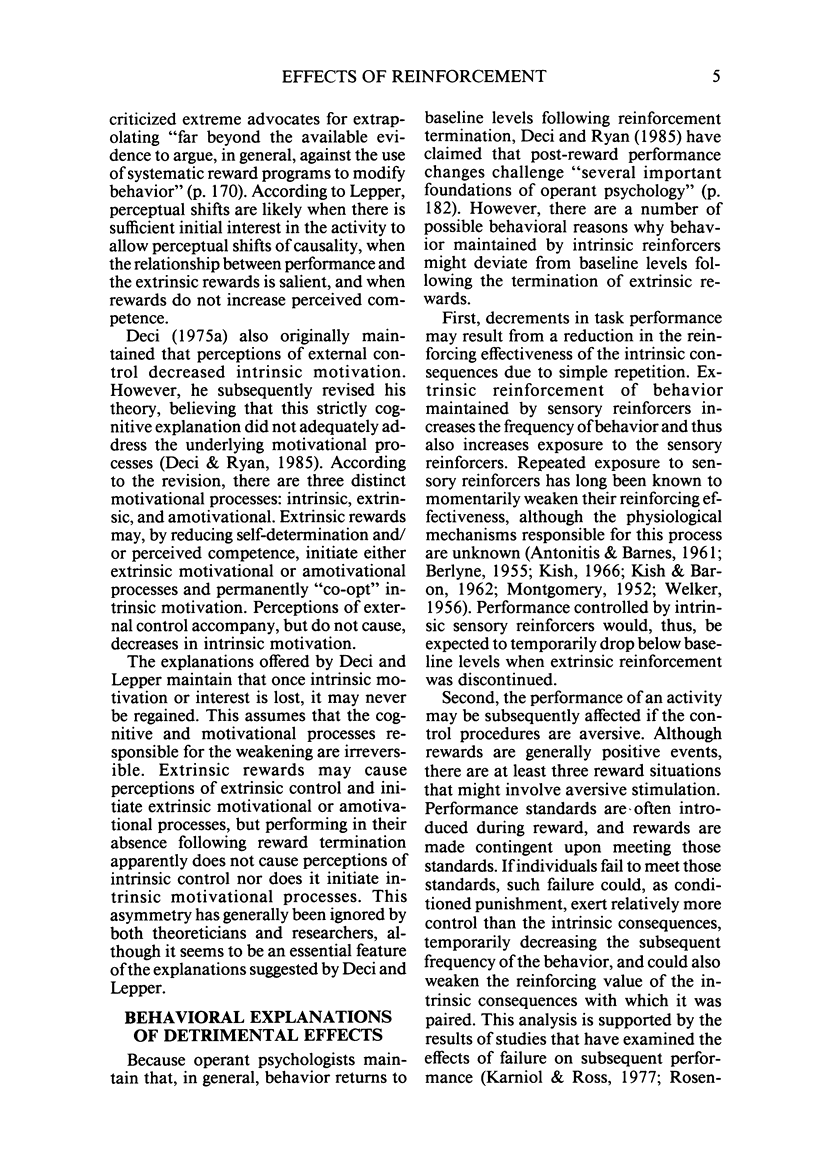
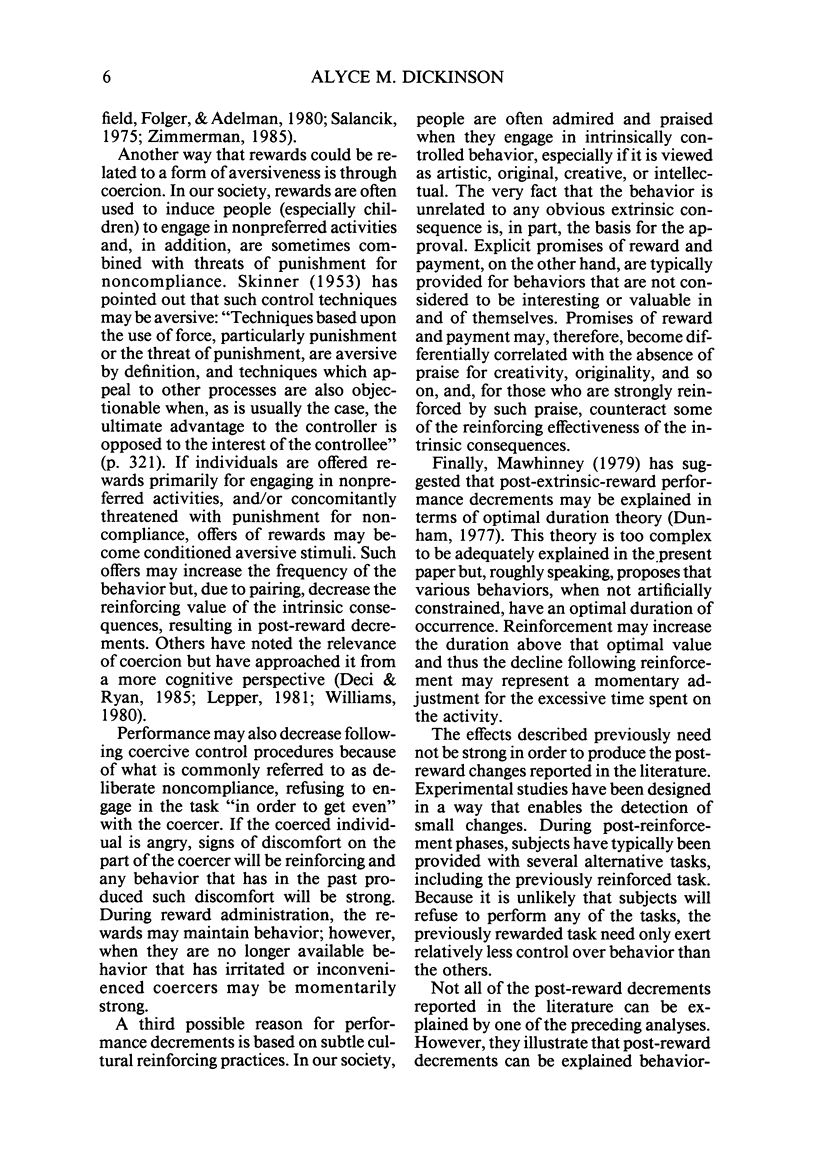
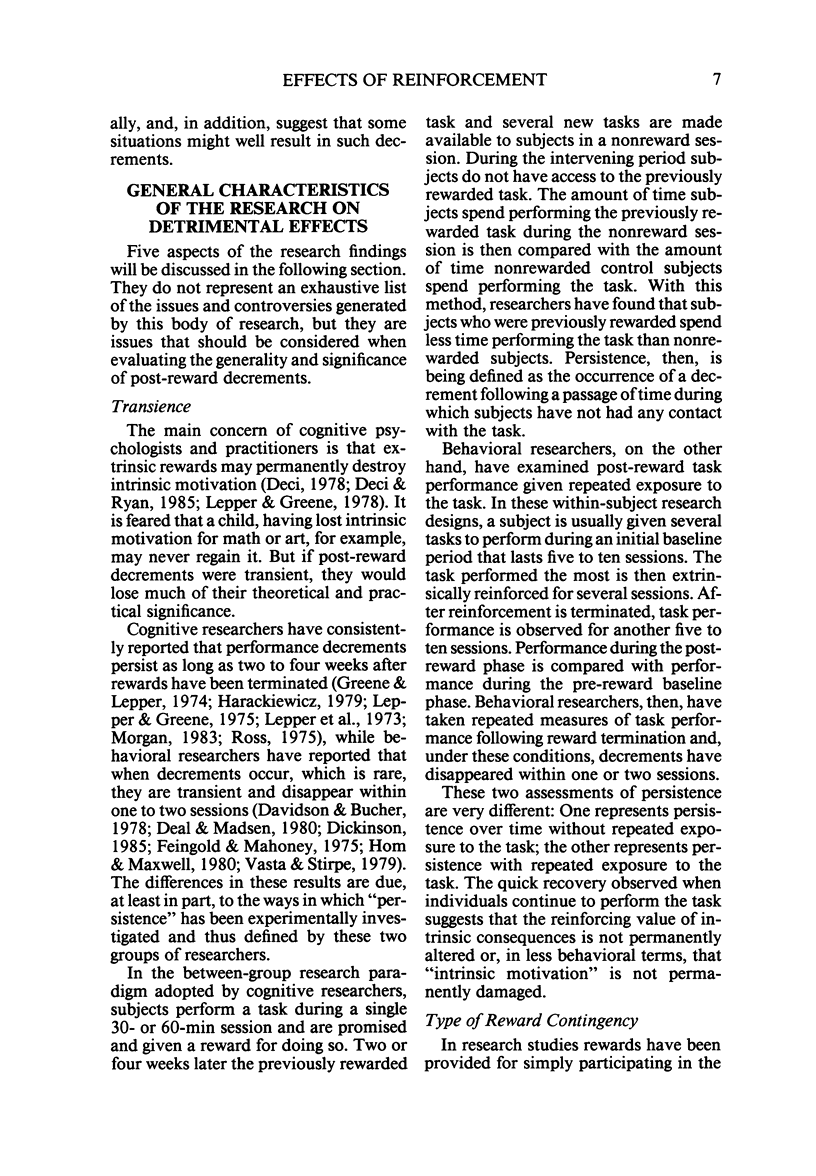
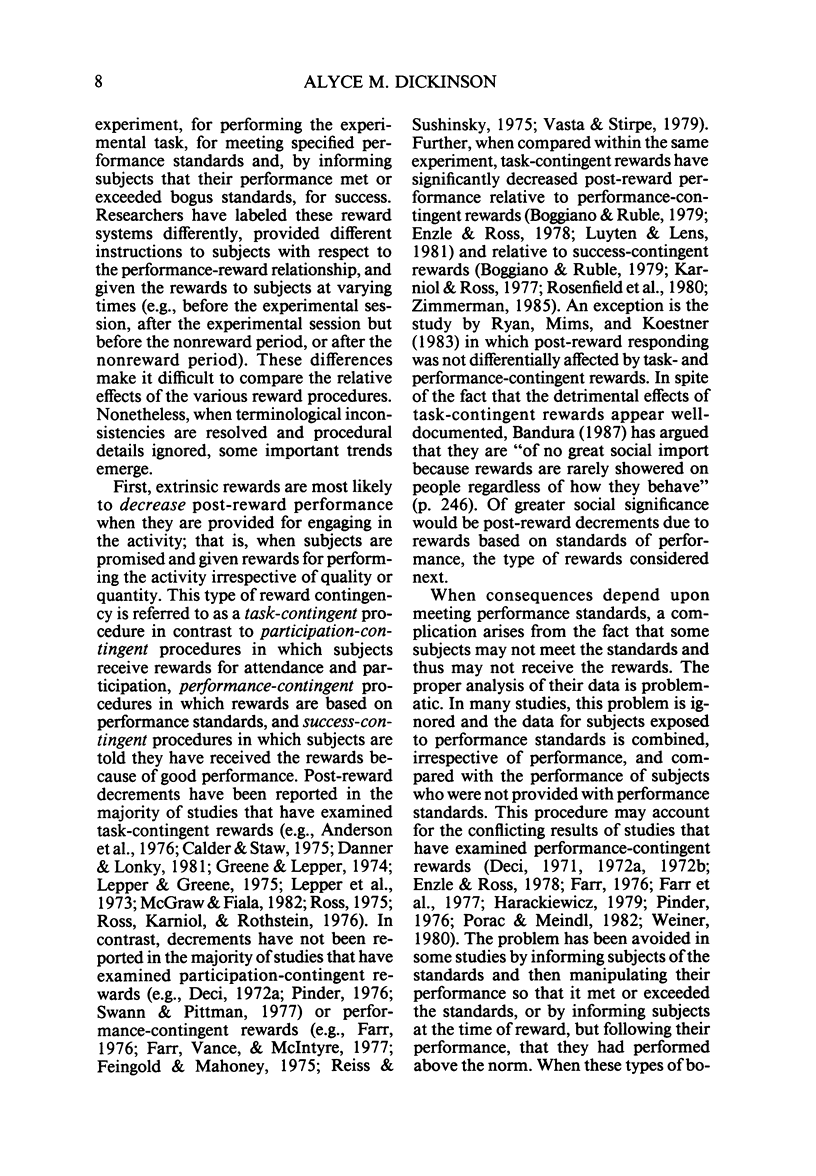
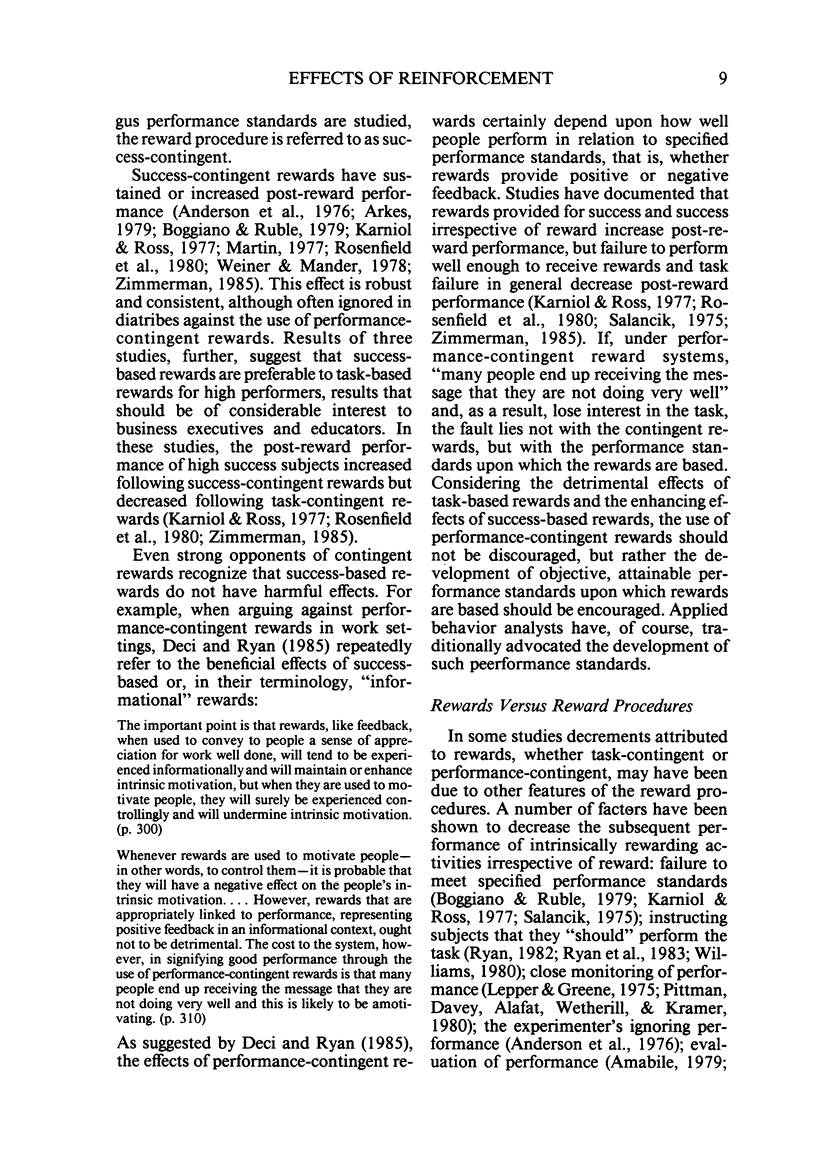
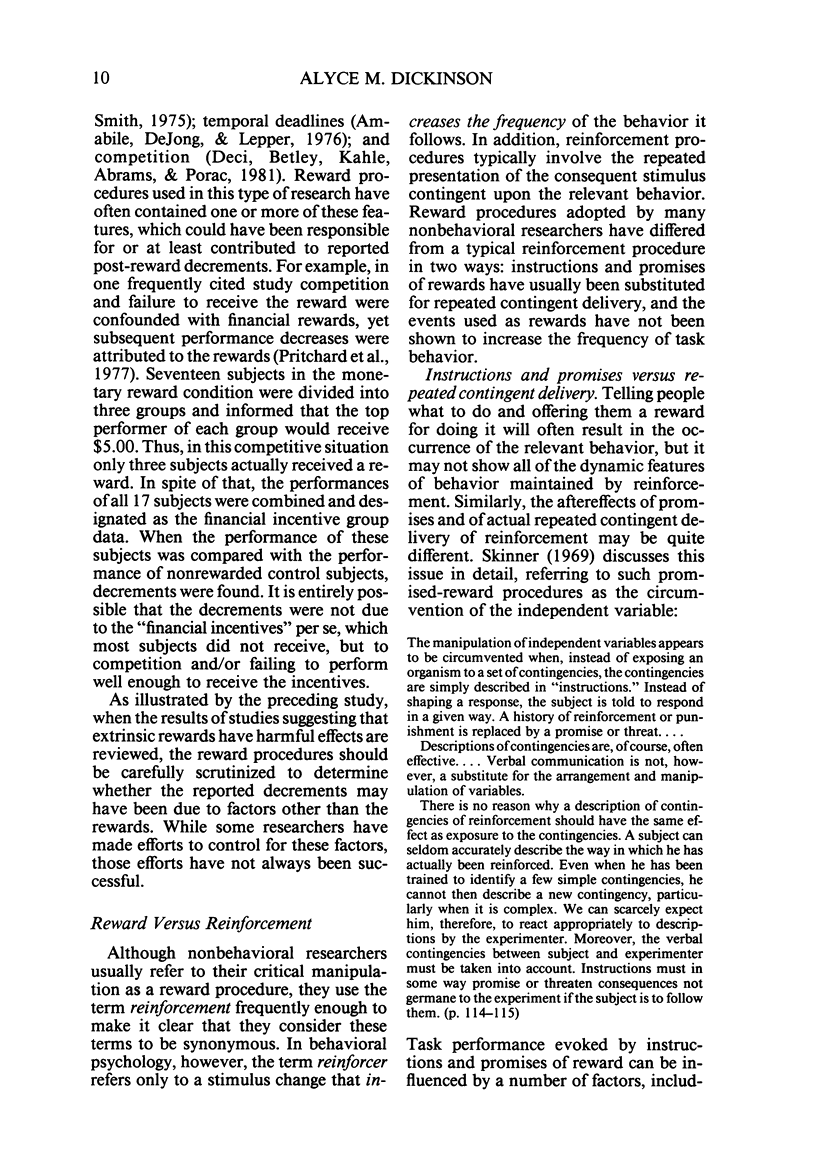
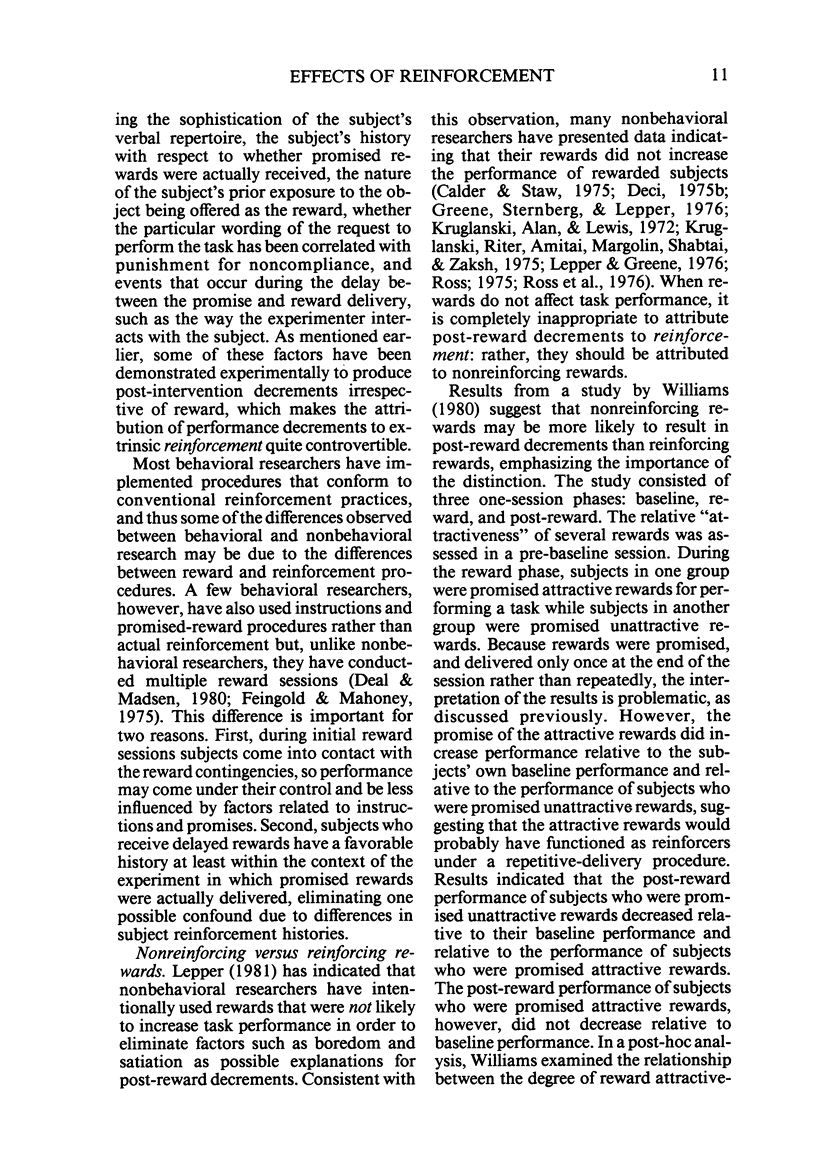
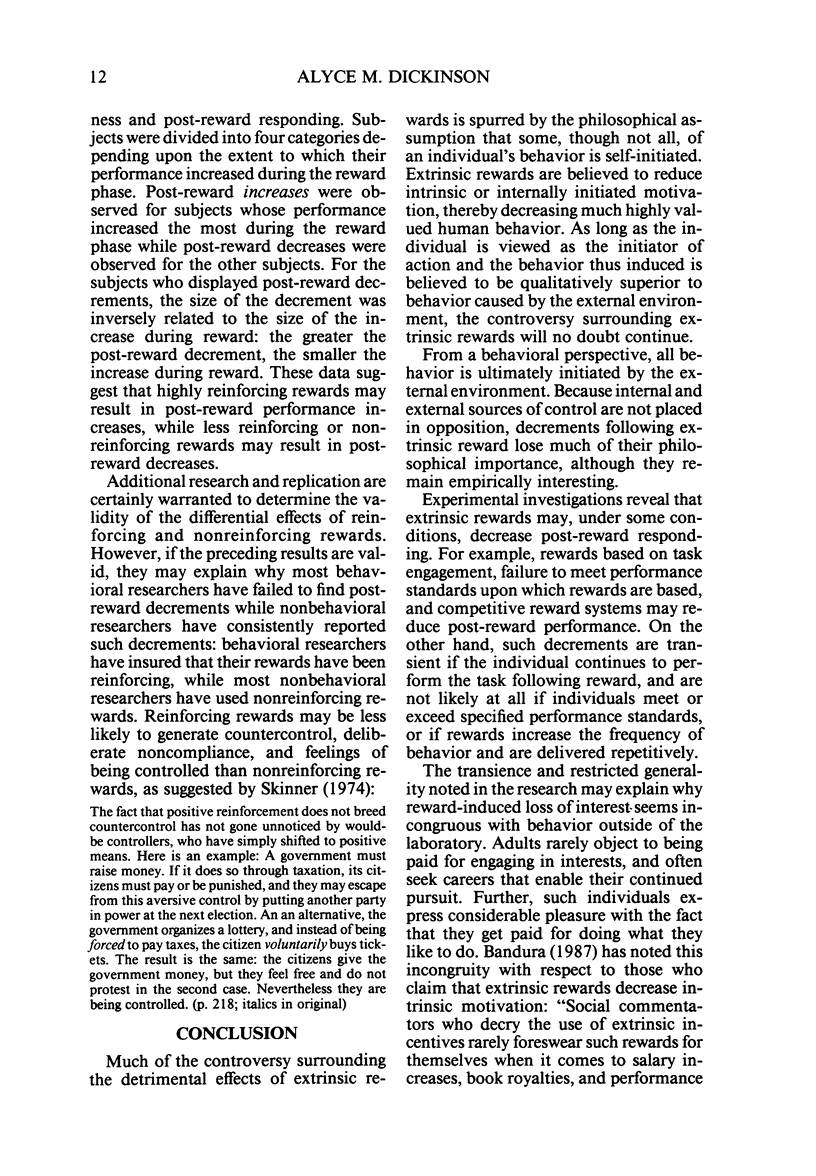
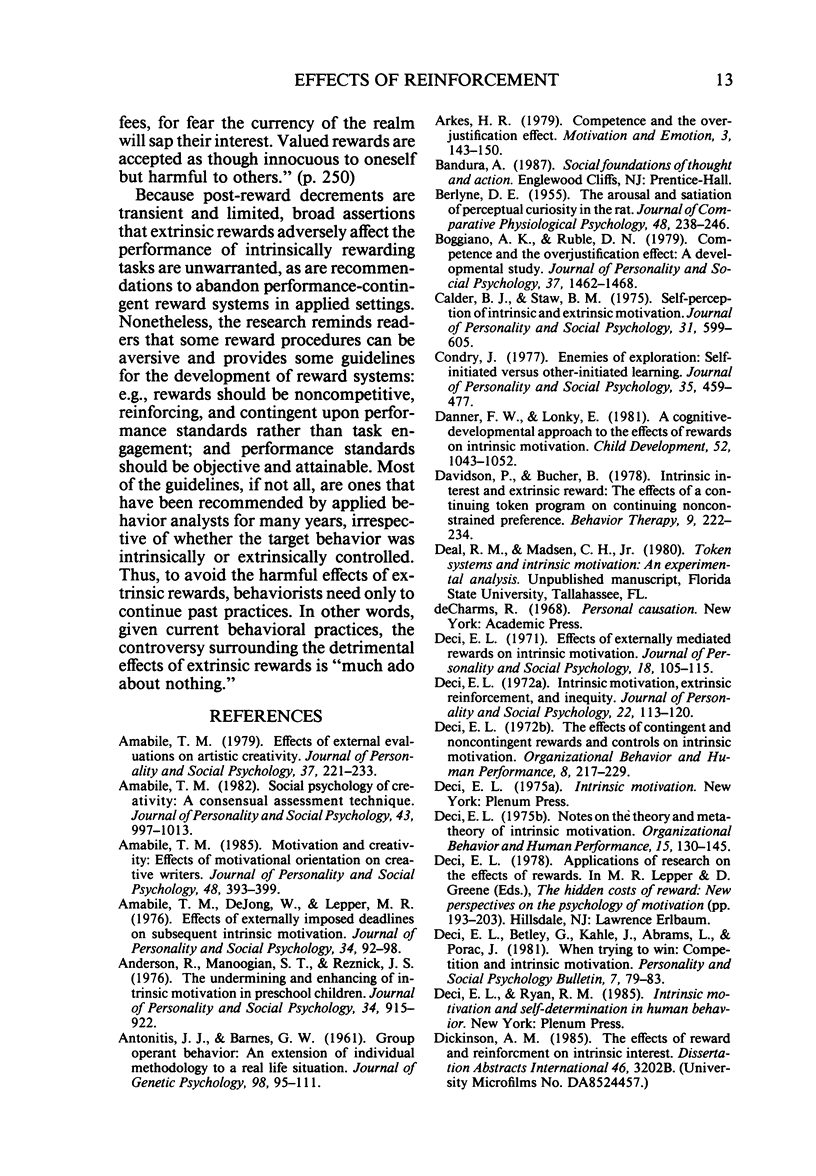
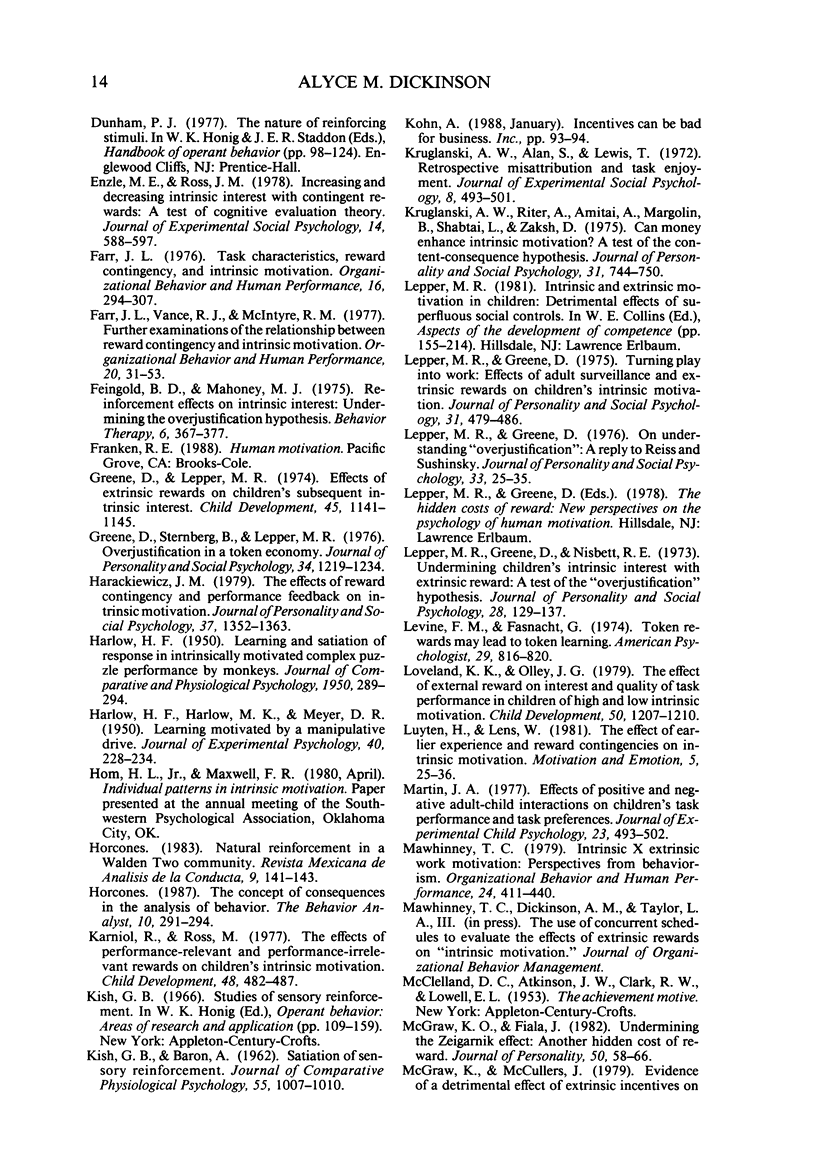
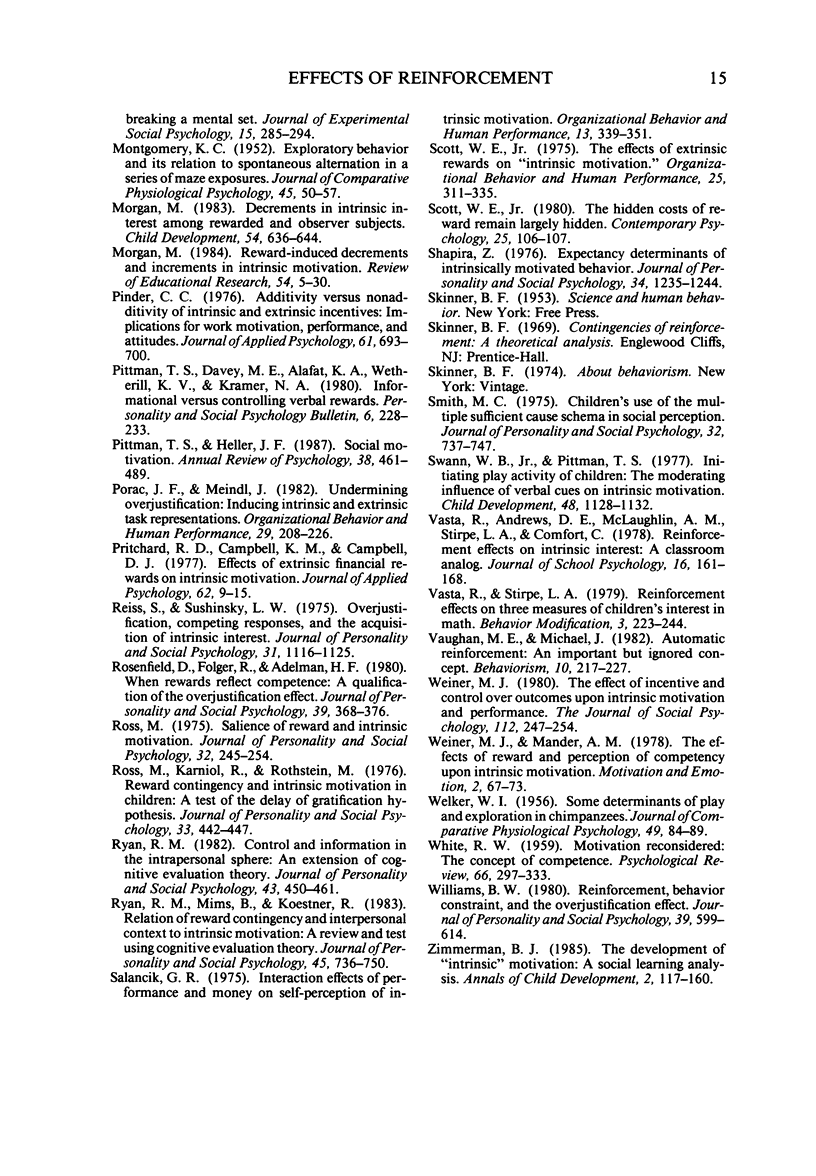
Selected References
These references are in PubMed. This may not be the complete list of references from this article.
- ANTONITIS J. J., BARNES G. W. Group operant behavior: an extension of individual research methodology to a real-life situation. J Genet Psychol. 1961 Mar;98:95–111. doi: 10.1080/00221325.1961.10534357. [DOI] [PubMed] [Google Scholar]
- BERLYNE D. E. The arousal and satiation of perceptual curiosity in the rat. J Comp Physiol Psychol. 1955 Aug;48(4):238–246. doi: 10.1037/h0042968. [DOI] [PubMed] [Google Scholar]
- Calder B. J., Staw B. M. Self-perception of intrinsic and extrinsic motivation. J Pers Soc Psychol. 1975 Apr;31(4):599–605. doi: 10.1037/h0077100. [DOI] [PubMed] [Google Scholar]
- Greene D., Lepper M. R. Effects of extrinsic rewards on children's subsequent intrinsic interest. Child Dev. 1974 Dec;45(4):1141–1145. [PubMed] [Google Scholar]
- HARLOW H. F., HARLOW M. K., MEYER D. R. Learning motivated by a manipulation drive. J Exp Psychol. 1950 Apr;40(2):228–234. doi: 10.1037/h0056906. [DOI] [PubMed] [Google Scholar]
- HARLOW H. F. Learning and satiation of response in intrinsically motivated complex puzzle performance by monkeys. J Comp Physiol Psychol. 1950 Aug;43(4):289–294. doi: 10.1037/h0058114. [DOI] [PubMed] [Google Scholar]
- Horcones C. L. The concept of consequences in the analysis of behavior. Behav Anal. 1987 Fall;10(2):291–294. doi: 10.1007/BF03392441. [DOI] [PMC free article] [PubMed] [Google Scholar]
- MONTGOMERY K. C. Exploratory behavior and its relation to spontaneous alternation in a series of maze exposures. J Comp Physiol Psychol. 1952 Feb;45(1):50–57. doi: 10.1037/h0053570. [DOI] [PubMed] [Google Scholar]
- WELKER W. I. Some determinants of play and exploration in chimpanzees. J Comp Physiol Psychol. 1956 Feb;49(1):84–89. doi: 10.1037/h0044463. [DOI] [PubMed] [Google Scholar]
- WHITE R. W. Motivation reconsidered: the concept of competence. Psychol Rev. 1959 Sep;66:297–333. doi: 10.1037/h0040934. [DOI] [PubMed] [Google Scholar]


